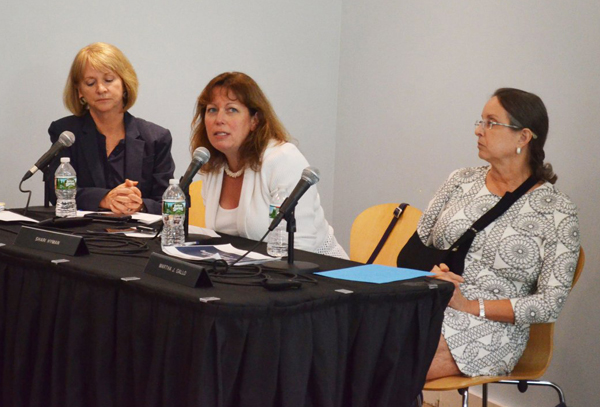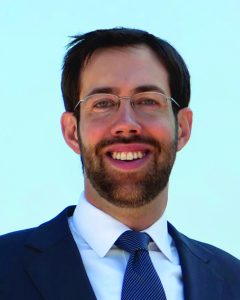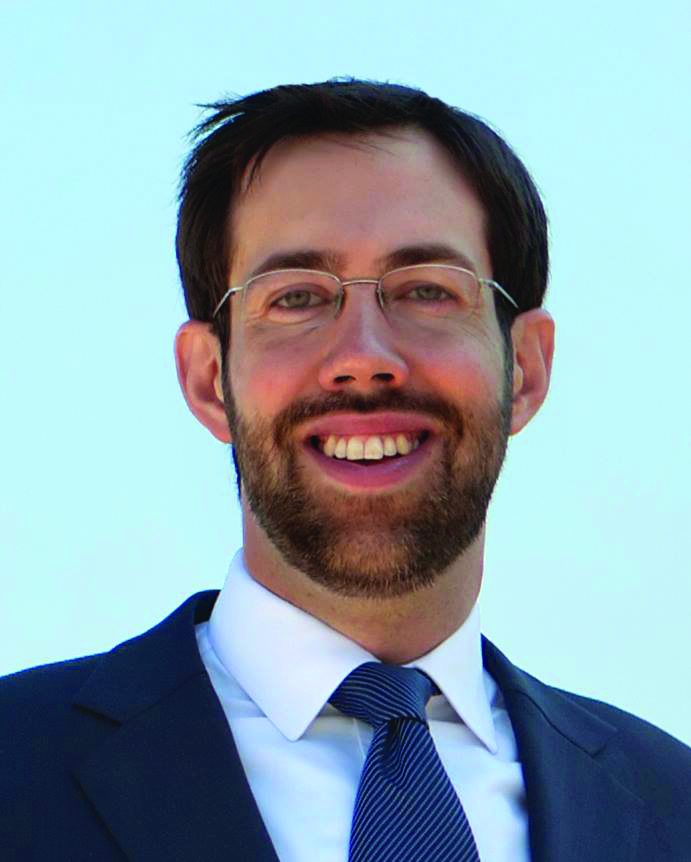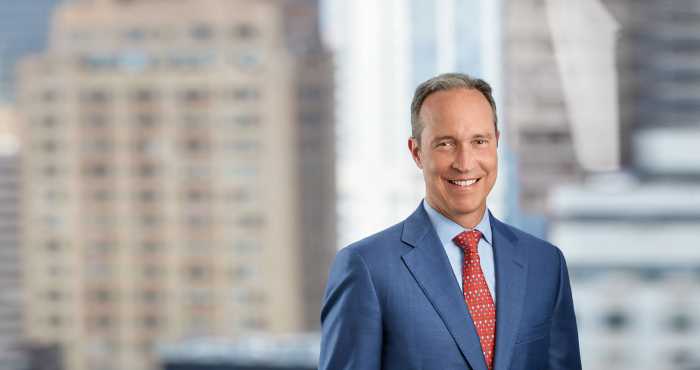
From left, the Battery Park City Authority’s Vice President of Real Property Gwen Dawson, President Shari Hyman, and board member Martha Gallo represented the authority at the July 20 town hall — which took place after the BPCA board meeting that same day.
BY ALEX ELLEFSON
State Sen. Daniel Squadron used his first opportunity to address a board meeting of the Battery Park City Authority to blast its decision to allow only elected officials to comment at its supposedly public meetings.
Describing the BPCA’s policy as a “woefully inadequate” response to residents’ call for more input, Squadron listed nearly two dozen other state and local authorities that invite the public to comment at their board meetings.
“The operations of these organizations are not diminished by greater public participation,” Squadron said, “they are enhanced.”
The BPCA board, which is hand-picked by the governor and includes only one resident of the neighborhood, has come under fire for a series of deeply unpopular decisions without community input — including removing longtime leaders of the North Cove Marina and Battery Park City Parks Conservancy as well as replacing the city’s Parks Enforcement Patrol with private security guards who have no enforcement power.
The latest attempt to increase the BPCA’s accountability to residents was a call from several Downtown elected officials for the board to have a public-comment period at its meetings — which are open to the public, but do not allow comments. The BPCA’s response was to invite elected officials — but not residents — to speak at board meetings, which Squadron and others argue completely misses the point.
“As I have said before, this was never about elected officials’ opportunity to be heard — we have many opportunities to be heard,” Squadron said at the board’s July 20 meeting.
In his statement to the board, Squadron relayed comments and questions he had received from Battery Park City residents, covering concerns ranging from access to affordable housing, storm resiliency upgrades in the aftermath of Hurricane Sandy, and questions about whether the authority could effectively balance the needs of residents and small businesses with tourism interests. But he stressed that hearing residents’ concerns second hand was no substitute for hearing them directly from the people whose neighborhood the board controls.
“Hearing directly from residents during board meetings is one important way to break the ongoing cycle of board decisions, followed by public outcry, followed by the promise of better communication from the board,” he said.

Squadron went on to list 22 state and local authorities that allow the public to speak at their board meetings — including the Metropolitan Transportation Authority, the Port Authority, Empire State Development Corporation and Long Island Power Authority — and called on the BPCA to follow their example.
Maryanne Braverman, a Battery Park City resident who attended Wednesday’s board meeting, applauded Squadron for pushing the BPCA to at least align its public-comment policy with similar government agencies.
“I’m glad his staff did that research,” she said. “There are other authorities that are open to the public and listen to the public. They may not always do what local people want but at least they are hearing us.”
Some, including Squadron, have called on the city to enact an agreement from the 1980s allowing the city to take over management of the neighborhood from the governor’s office by paying $1 and assuming the authority’s debts.
Community board 1 member and BPC resident Tom Goodkind has long advocated for a city takeover of the state-controlled neighborhood.
“I don’t believe there is any reason why we need a non-elected agency representing citizens of New York City,” he said. “We have a very well-educated and long-term community that knows more about the community than those people that are here to represent us.”
Braverman said she does not support calls for the authority to be scrapped, but she said there should be more residents appointed to the board, which she agreed is woefully out-of-touch with the neighborhood.
Case in point, she noted that when the board was discussing a major overhaul of South End Ave. — which runs down the middle of Battery Park City — one board member didn’t even know where the street was located.
“It’s our main street,” Braverman said. “So we have a problem. Local people should be on the board — people that know the neighborhood and are not just chosen by the governor.”
But the authority’s policy on public comment is not “functionally different” than allowing residents to speak at their meetings, argues BPCA spokesperson Nicholas Sbordone, who noted that the BPCA uses multiple avenues for community engagement, such as social media outreach and sending staff to community board meetings.
“That’s the type of engagement — immediate, responsive, multi-channel — that we want to provide the Battery Park City community we serve. And we look forward to continuing to deliver on that commitment,” Sbordone said in a statement.
Residents may also submit written comments to the board prior to meetings, which will be included the in minutes in the public record.
In addition, Sbordone pointed out that the BPCA has recently revived a lapsed tradition of holding quarterly town hall meetings which allow residents to engage in a direct dialogue with the authority.
However, the most recent town hall was held on the evening of July 20 — several hours after the authority’s board meeting — clearly limiting the influence any such dialogue could have on the board’s decisions.
Only one of the BPCA’s board members attended the town hall — Martha Gallo, the lone member who lives in Battery Park City. (Board chairman Dennis Mehiel, who usually attends, said during the earlier board meeting he would have to miss the town hall because of “physical problems.”) BPCA president Shari Hyman also attended, along with property chief Gwen Dawson, but some residents complained that the lack of board members in attendance highlighted the feeling that the town halls are a poor substitute for a comment period at board meetings.
“Where are the other board members?” Justine Cuccia, a public member of the CB1, asked. “We would like to have a discussion and have back and forth with them at the board meetings.”
Another part of the town hall that seemed emblematic of the BPCA’s disconnect with locals came when the authority unveiled plans for the overhaul of South End Ave. A consulting group drew up three design concepts based on a survey that included not just residents and business owners along the corridor, but also tourists.
The authority said it would decide on a final design after two open-house meetings for residents to discuss the three options, and residents complained that both chances to weigh in were scheduled during mid-summer, when many residents are out of town.
“Transparency starts at the beginning of the process, not the end,” said Don Lee, a BPC resident who is running for State Assembly. “That means if you had community input, you would know better than to do the planning during summer.”




































